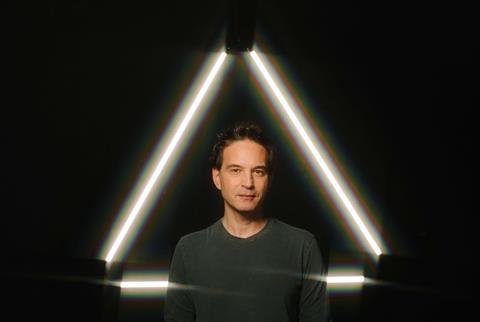
A World Soundtrack Awards 2024 nominee for television composer of the year for his work on Fargo season five and Netflix’s Ripley, Jeff Russo is one of the industry’s most versatile composers.
Best known for scoring all five seasons of Fargo, the US composer’s other TV highlights include Star Trek: Discovery and The Umbrella Academy, while key film credits include the 2018 Mark Wahlberg action-thriller Mile 22 and Chiwetel Ejiofor’s biographical drama Rob Peace, which premiered at Sundance Film Festival in January.
Russo is also a founding member of the Grammy-nominated rock band Tonic. Speaking to Screen, Russo sheds light on his recent work and his background as a rock-band guitarist.
2023 was a prolific year for you. What is it like working on these projects back-to-back in such a short space of time?
At times it wasn’t even back-to-back, it was right on top of one another. The fact that they are so different can be inspiring for the other. If I start to lose my way on something, I can stop, jump onto something else and rattle the cobwebs in my brain to get inspired again.
One of the things that was great about Ripley particularly is that it was definitely outside of my wheelhouse. When Steve [Zaillian, the series’ creator] asked me to start doing some music that had a Sicilian flavour to it, I was like, “Oh yeah, sure, I should do that.” Then I sat down and I realised I’d never done that before. So that was interesting, and definitely pulled me right out of Fargo and into something completely new. It was inspiring. The main thing is how to manage time. I had to manage the schedule pretty deftly.
What was your initial creative inspiration for Ripley?

I’d worked with Steve Zaillian previously on a show called The Night Of. He called me and said, “We’re doing this new telling of the Patricia Highsmith novel, what do you know of it?” I said, “I know the book but I’ve never seen the [Anthony Minghella] movie.” He said, “Good. Don’t watch it because we’re doing a totally different telling of it.”
He sent me the scripts and I started sketching ideas for what I thought was indicative of 1963 Italy. I found that the music I was writing at the very beginning, which had a bit of a romantic flair to it, was not initially what he wanted. I sent it to him and Steve said, “This is really good but I want you to understand we are telling a story about a psychotic serial killer, and I want to lean into that.” So I rethought some of the instrumentation and the way I was thinking about the music.
Steve eventually called me and said, “I want you to go to [the second-to-last] episode 7 and then see how that informs episodes 1, 2 and 3.” When I did that, all of a sudden the entire score opened up and made more sense to me. I’ve never written that way. In figuring out what the end was first, it really did give me a trajectory.
You’ve been involved with Fargo since the first season of the show in 2014. Can you discuss your initial inspiration for the music and how this has evolved?
The first season was quite scary I would say. Just stepping into the shoes of what the Coen brothers had already created in the movie was difficult, because what we wanted to do was continue that idea but create our own identity. That first season was like a bridge from the film to the show.
It wasn’t until season 2 that we came into our own musically, narratively, the whole thing. My relationship with Noah [Hawley, Fargo’s creator] is one based upon trust as well. The same as Ripley, he would send me scripts and I would start sketching ideas for themes and characters. He would listen to that, and it would inform how he felt about what he was going to shoot, and where they were going to be on location. It was an interesting back-and-forth that has extended all the way to season 5.
You’re also well known as the guitarist in Tonic. How does that influence your composition for film and TV if at all?
Emerson [Hart] and I started that band when we were kids. How we developed as songwriters and performers did inform what I do now. Do I look at them as separate things? Yes – I can sit and write a song and that’s a different way of writing music than I do when I sit down to write a score. But they now inform each other. When I sit down now with Emerson to write a song, stuff that I picked up as a composer, I’m inserting that into how I might create a song. And when I sit down to write a score, I’m impacted by my experiences as a performer and my experience playing in the band.
Everything that you experience in your life contributes to who you are at the moment that you’re talking about. It’s all impacted by everything.
























No comments yet